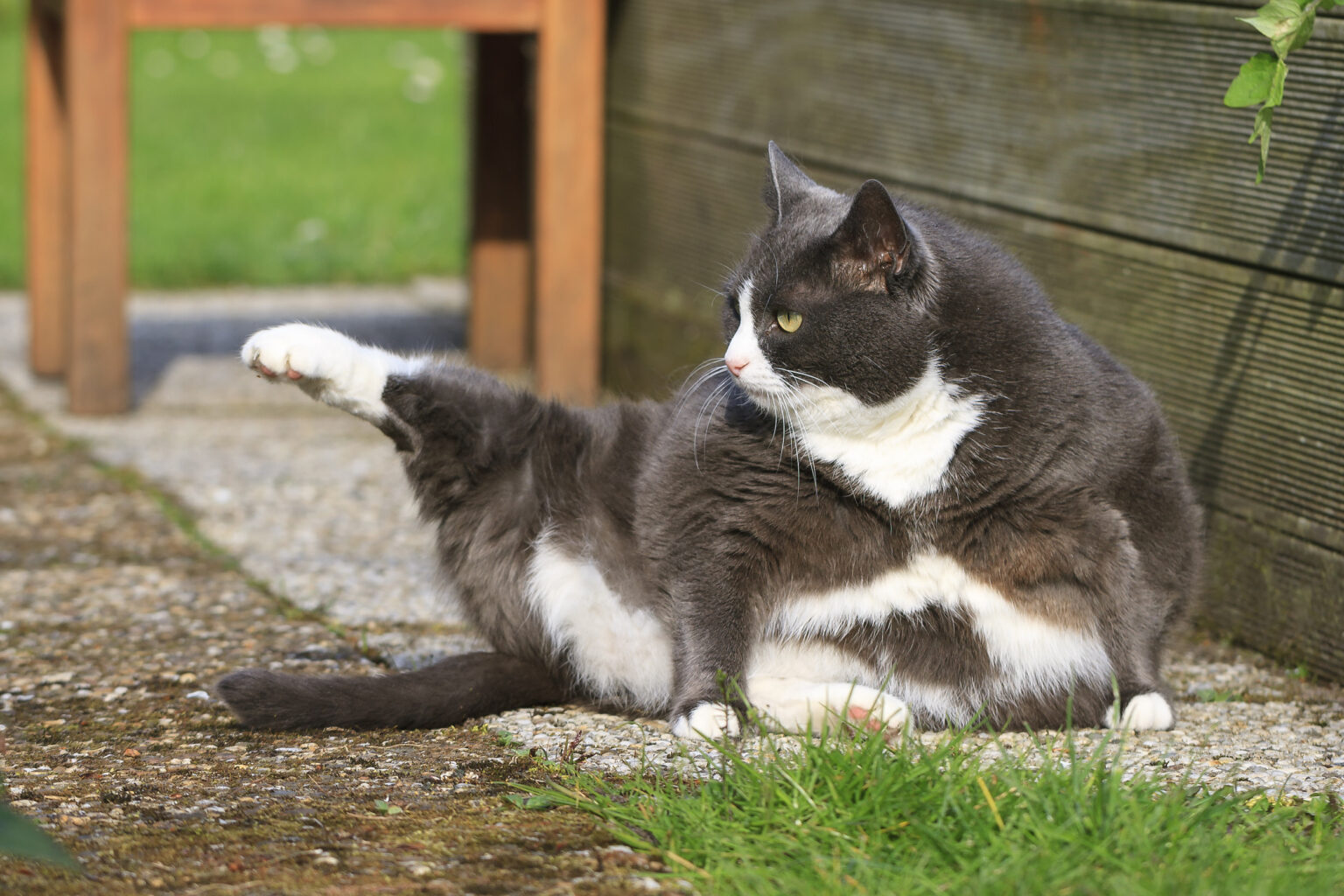A video of an overweight cat refusing to exercise has stolen the hearts of TikTok users, racking up over 455,000 views.
The clip, shared by owner Annabelle Williams (@annabelleleewilliams), shows Lou, a tabby cat, lounging in the sun and occasionally rolling over while on a leash. Instead of walking, as advised by the vet to help her shed 5 pounds, Lou opts for relaxation.
Despite encouragement from her dad—who can be heard behind the camera saying, “Let’s go five steps”—Lou barely manages one, and only to change positions.
Posted on August 19, the hilarious video has already gained more than 102,000 likes and over 850 comments. Many viewers were amused to spot a tracking device clipped to Lou’s collar.
One woman commented: “It’s the AirTag for me!!! She ain’t going nowhere.”
Another posted: “Thank God you had the AirTag—you nearly lost her on that second roll.”
A third asked: “Is the AirTag so you know if she’s in the kitchen or the living room?”
Meanwhile, one commenter defended Lou’s attitude, writing: “She’s not made for the walking life. She’s a laid-back sunbathing queen.” Her owner replied: “Sadly, she got that from her mother.”
Another pointed out: “She’s actually moving. It might be through rolls, but it’s movement. That’s a win!”
While TikTok viewers have found the humor in Lou’s stubbornness, obesity in cats is a serious issue. The VCA Animal Hospital says that overweight cats face increased risks of:
- Cancer
- Diabetes mellitus
- Heart disease and high blood pressure
- Osteoarthritis and accelerated joint degeneration
- Urinary bladder stones
- Anesthetic complications
The nationwide and international network of veterinary hospitals states simply reducing food portions can lead to nutrient deficiencies. Instead, veterinarians recommend a carefully planned, calorie-restricted diet with precise portions and feeding schedules. Options include specially formulated kibble or canned foods, or a custom diet designed by a veterinary nutritionist.
Consistency is crucial—treats should make up no more than 10 percent of daily calories. Monthly weigh-ins help track safe progress, while physical rehabilitation may further support healthy weight loss.
Interestingly, cats are also proving useful in obesity research. Studies show their gut microbiomes respond to calorie restriction in ways similar to humans.
For instance, overweight cats placed on controlled diets develop higher levels of propionic acid—linked to appetite control and reduced fat—alongside increases in the bacterium Prevotella 9 copri. These findings could provide insights into managing obesity for both felines and humans.
Newsweek reached out to @annabelleleewilliams for comment via TikTok. We could not verify the details of the case.
Read the full article here


